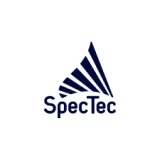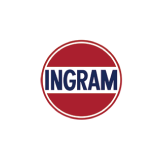Selecting the right backend language can be a real challenge, considering how many languages there are available. According to the Stack Overflow Survey of 2022, JavaScript, at 65.36%, ranks as the most commonly used programming language, followed by SQL at 49.43%, Python at 48.07%, and Java at 33.27%.
Let’s take a look at the most commonly used languages and help you choose the perfect one for your project.
JavaScript
It is the high-level, versatile, and platform-independent language that is most commonly used for back-end development. It offers Multithreading for concurrent requests, great community support, Dynamic Typing, awesome scalability and security, and client-side validation.
- Code Reusability. JavaScript, as an object-oriented programming language, simplifies code reuse and organization.
- Interoperability. JavaScript offers seamless integration with a wide range of other programming languages.
- Asynchronous Programming and Scalability. JavaScript provides robust support for asynchronous programming and efficient scalability, even when handling heavy workloads.
- Server Compilation for Consistent Performance. In JavaScript, code can be compiled and executed on the server, ensuring consistently high performance.
- Popular Backend Frameworks. Notable backend frameworks for JavaScript include Node.js, Express.js, and Meteor.js.
SQL
SQL is a query language that provides an incredibly reliable way of manipulating your back-end for excellent performance. It is a great choice for handling large datasets thanks to SQL’s syntax. If you’re using SQL for the back-end, you would also need databases such as SQLite, PostgreSQL, MySQL, etc.
- Scalability and Data Handling. SQL is ideal for ensuring scalability and effectively managing large volumes of data and high levels of traffic.
- Data Consistency and Accuracy. SQL databases maintain data consistency and accuracy and prevent integrity and duplication issues.
- Syntax Consistency and Interoperability. SQL databases offer syntax consistency and are easily compatible with other relational databases.
- Built-in Security Features. SQL databases come with built-in security features, including data encryption, user authentication, and access control.
- Fast Query Processing. SQL databases provide fast performance by efficiently processing complex queries.
Python
Python is a free, open-source language that has enormous community support due to its short learning curve, a vast choice of development tools, and its frameworks, such as Django, Flask, and Robot.
- Ease of Learning. Python is known for its relatively easy learning curve, featuring clean and readable syntax that’s intuitive for beginners.
- Active Developer Community. Python has a vibrant developer community, offering extensive libraries and frameworks for various applications.
- Versatility. Python’s versatility makes it suitable for a wide range of applications, including scientific computing, data analysis, and machine learning (ML).
- Scalability without Performance Compromise. Python is highly scalable, allowing for the development of both small and large-scale applications without compromising performance.
- Interoperability. Python seamlessly integrates with other programming languages and technologies, making it a versatile choice for various development needs.
Java
Just like Python, Java also has great community support as it is highly versatile, suitable for enterprise-level backends, and incredibly reliable. Moreover, there are numerous open-source libraries to choose from when using Java.
- Enhanced Security. Java’s use of fewer explicit pointers reduces the likelihood of security breaches, making it a safer programming language.
- Ease of Learning and Maintenance. Java is far less complex than languages like C and C++, making it easy to learn, develop, and maintain.
- Multi-threading Support. Java offers robust support for multi-threading, leading to improved efficiency and performance in applications.
- Platform Independence. Java’s “write once, run anywhere” capability makes it suitable for both application and web development, as it can run on various platforms without modification.
- Development Tools. Java benefits from popular development tools and frameworks such as Eclipse IDE, Maven, and the Spring Framework, which help in creating, testing, and deploying code with ease.
PHP
This is an open-source, server-side scripting language that offers cross-platform compatibility and numerous additional features. It is fast-loading, has a collection of add-ons, and is incredibly flexible. Moreover, PHP offers synergy with HTML and affordable hosting services.
- Database Support. PHP provides built-in support for databases such as MySQL, PostgreSQL, and Oracle, making it convenient for database-driven applications.
- Platform Independence. PHP is platform-independent, which means it can run on various operating systems without compatibility issues.
- Server-Side Scripting. PHP is a server-side scripting language offering enhanced security and control for web application development.
- Ease of Learning. PHP is known for its ease of learning and readability, making it a popular choice, especially for beginners and amateurs.
- Framework Ecosystem. Several popular PHP frameworks like Laravel, Symfony, CodeIgniter, and Zend Framework offer enhanced development capabilities and tools.
Other popular back-end languages include Golang, Kotlin, Ruby, Rust, Node.js, C#, Perl, Express.js, C++, and Scala. All of them have their unique features, pros, and cons, so the choice depends on your specific needs and project requirements. There’s no terrible or universally ideal language for backend mobile app development and web development; all of them are popular for a reason. Thus, consider your project specs, budget, timeline, and in-house skills and make a choice based on that.






